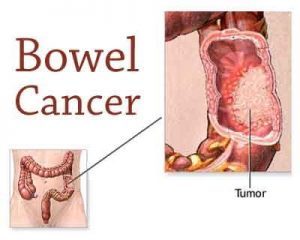- Home
- Editorial
- News
- Practice Guidelines
- Anesthesiology Guidelines
- Cancer Guidelines
- Cardiac Sciences Guidelines
- Critical Care Guidelines
- Dentistry Guidelines
- Dermatology Guidelines
- Diabetes and Endo Guidelines
- Diagnostics Guidelines
- ENT Guidelines
- Featured Practice Guidelines
- Gastroenterology Guidelines
- Geriatrics Guidelines
- Medicine Guidelines
- Nephrology Guidelines
- Neurosciences Guidelines
- Obs and Gynae Guidelines
- Ophthalmology Guidelines
- Orthopaedics Guidelines
- Paediatrics Guidelines
- Psychiatry Guidelines
- Pulmonology Guidelines
- Radiology Guidelines
- Surgery Guidelines
- Urology Guidelines
New AI system can detect bowel cancer in less than a second

Scientists have developed an artificial intelligence (AI) system that can automatically detect colorectal cancer in less than a second.
Researchers from Showa University in Yokohama, Japan developed the computer-aided diagnostic system that uses an endocytoscopic image - a 500-fold magnified view of a colorectal polyp - to analyse about 300 features of the polyp after applying narrow-band imaging (NBI) mode or staining with methylene blue.
The system compares the features of each polyp against more than 30,000 endocytoscopic images that were used for machine learning, allowing it to predict the lesion pathology in less than a second.
Researchers studied 250 men and women in whom colorectal polyps had been detected using endocytoscopy.
The AI-assisted system was used to predict the pathology of each polyp and those predictions were compared with the pathological report obtained from the final resected specimens.
The team assessed 306 polyps in real-time by using the AI-assisted system, providing a sensitivity of 94 percent, specificity of 79 percent, accuracy of 86 percent, and positive and negative predictive values of 79 percent and 93 percent respectively, in identifying neoplastic changes.
"We believe these results are acceptable for clinical application and our immediate goal is to obtain regulatory approval for the diagnostic system," said Yuichi Mori from Showa University in Yokohama.
The team is now undertaking a multi-centre study for this purpose and are also working on developing an automatic polyp detection system.
"Precise on-site identification of adenomas during colonoscopy contributes to the complete resection of neoplastic lesions," said Mori.
"This is thought to decrease the risk of colorectal cancer and, ultimately, cancer-related death," Mori added.

Disclaimer: This site is primarily intended for healthcare professionals. Any content/information on this website does not replace the advice of medical and/or health professionals and should not be construed as medical/diagnostic advice/endorsement or prescription. Use of this site is subject to our terms of use, privacy policy, advertisement policy. © 2020 Minerva Medical Treatment Pvt Ltd